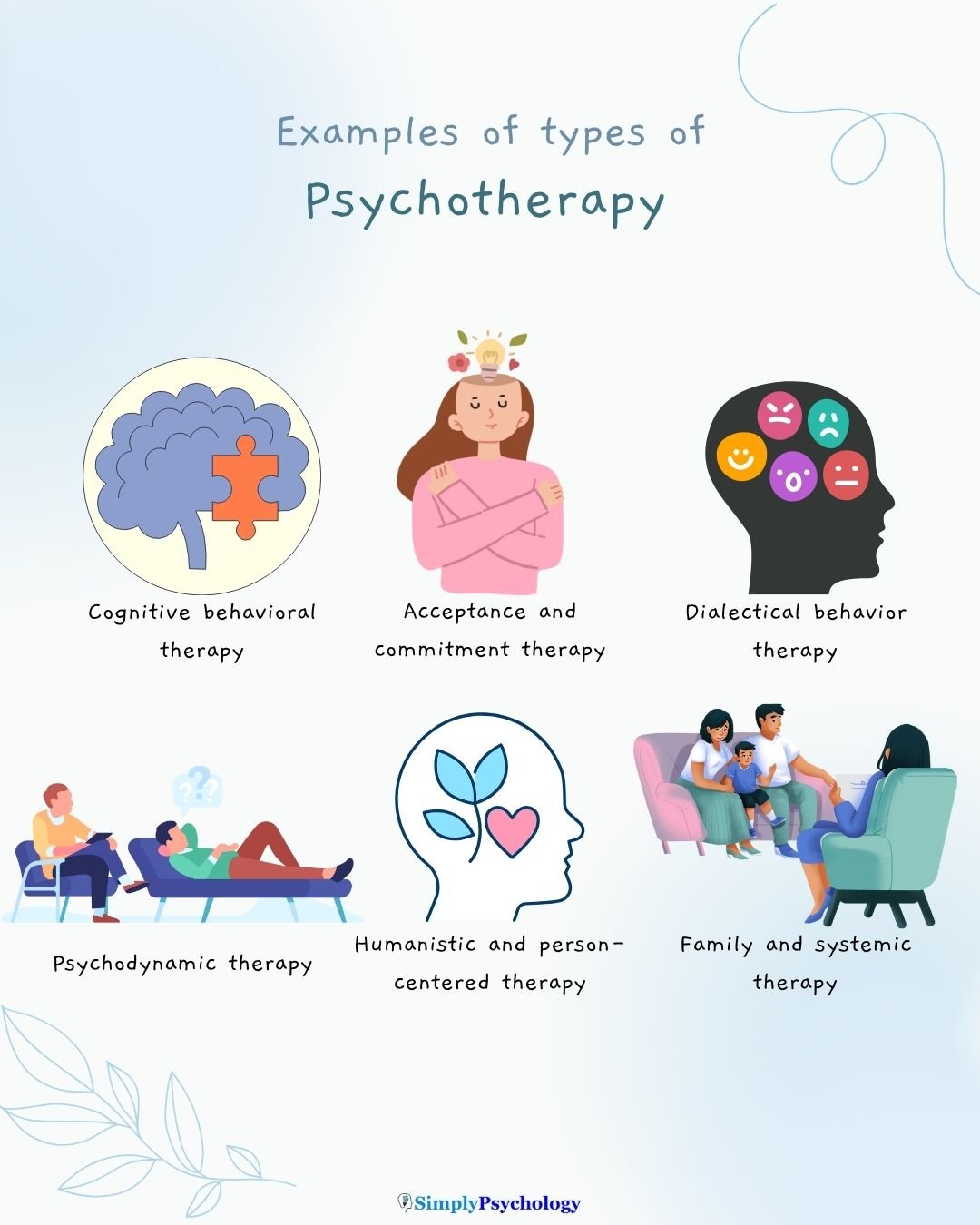Top Benefits Why virtual therapy online is Revolutionizing Mental Health Care
A Comprehensive Guide to the Various Types of Coaching and Their Effect
Counseling encompasses a variety of therapeutic approaches, each designed to fulfill one-of-a-kind psychological wellness requirements. From the structured techniques of Cognitive-Behavioral Treatment to the understanding nature of Person-Centered Treatment, these techniques provide unique paths to personal growth. Family members therapy and Dialectical Behavior modification give extra frameworks for recovery, while group counseling promotes community support. Understanding these varied methods can brighten their profound impact on specific wellness. What remains to be discovered are the ins and outs of each approach.

Understanding Cognitive-Behavioral Therapy (CBT)
Although many healing strategies exist, Cognitive-Behavioral Therapy (CBT) stands out as a result of its organized, ambitious nature. This type of therapy is based on the premise that ideas, sensations, and behaviors are adjoined, and by transforming unfavorable thought patterns, individuals can modify their psychological actions and actions. CBT employs numerous strategies, such as cognitive restructuring, which assists clients identify and test distorted beliefs. Behavior activation encourages involvement in satisfying tasks to fight anxiety.
Generally, CBT is a temporary therapy, usually long-term in between 12 to 20 sessions, making it available for those seeking quick outcomes. Its effectiveness has been well-documented in dealing with anxiety disorders, anxiety, and other mental wellness concerns. The therapist's duty is to assist clients with exercises and research assignments, cultivating self-awareness and promoting lasting coping techniques. This sensible technique encourages people to take control of their mental well-being, ultimately resulting in improved life complete satisfaction.
Exploring Person-Centered Therapy
Person-Centered Therapy, created by Carl Rogers, uses a contrasting approach to Cognitive-Behavioral Treatment by highlighting the client's subjective experience. This therapeutic design prioritizes the person's perspective, fostering an atmosphere of empathy, unconditional favorable respect, and authenticity. By enabling customers to discover their feelings and thoughts without judgment, specialists promote personal growth and self-discovery.
The core tenet of Person-Centered Treatment is the idea that people possess the fundamental capability for self-healing and individual growth. In this setting, the therapist functions as an encouraging overview as opposed to a directive authority, motivating customers to take charge of their own trip. This strategy is particularly effective for those coming to grips with problems such as reduced self-worth, anxiousness, or depression, as it empowers them to confront and understand their emotions. Inevitably, Person-Centered Therapy grows a strong therapeutic alliance, promoting depend on and openness necessary for purposeful adjustment.
The Duty of Family Members Treatment in Recovery
Household treatment works as an important component in the recovery procedure for people and their connections. This restorative technique concentrates on enhancing interaction, resolving conflicts, and fostering deeper connections amongst household members. By attending to inefficient dynamics, family treatment urges each participant to reveal their thoughts and sensations in a secure setting, advertising understanding and empathy.

The impact of family members therapy prolongs beyond the sessions, as enhanced relationships can result in enhanced emotional health for all entailed. On the whole, family members therapy plays an important function in healing by cultivating unity, strength, and common support amongst member of the family, inevitably guiding them towards a much healthier, extra fulfilling life together.
Unloading Dialectical Behavior Modification (DBT)
Structure on the structure of therapeutic approaches that enhance psychological well-being, Dialectical Behavior modification (DBT) provides an organized framework for individuals fighting with intense feelings and behavior difficulties. Developed by Marsha Linehan, DBT incorporates cognitive-behavioral methods with mindfulness practices, intending to assist clients handle overwhelming sensations and improve social efficiency.
The therapy is especially helpful for those detected with Borderline Individuality Problem yet is additionally relevant to a series of various other psychological health and wellness problems. low cost therapy. DBT contains individual therapy sessions and abilities training teams, concentrating on 4 essential capability: mindfulness, distress tolerance, feeling policy, and social effectiveness
The Benefits of Team Counselling Procedure
While specific therapy supplies important understandings, group counseling sessions supply distinct advantages that can substantially boost the restorative experience. One essential advantage is the feeling of neighborhood that emerges amongst participants. Individuals usually find convenience in sharing their experiences with others dealing with similar obstacles, promoting a relationship therapy supportive setting that minimizes feelings of seclusion.
Additionally, group sessions urge diverse perspectives, enabling participants to gain from each other's coping techniques and insights. This cumulative knowledge can lead to enhanced problem-solving capabilities and a wider understanding of personal issues.
Additionally, group counseling frequently promotes accountability, as members motivate one another to seek their objectives and follow their dedications. Lastly, the cost-effectiveness of group therapy makes it an easily accessible choice for several people looking for support. On the whole, the collaborative nature of group therapy sessions can substantially improve the restorative trip.
Often Asked Concerns
What Qualifications Do Specialists Required to Practice Counseling?
Specialists commonly call for an appropriate degree in psychology or therapy, together with supervised professional experience. In addition, they should obtain appropriate licensure or certification to exercise lawfully, ensuring adherence to specialist standards and moral guidelines.
How Do I Select the Right Type of Treatment for Me?
Choosing the appropriate sort of treatment includes evaluating personal needs, checking out various strategies, thinking about specialist specialties, and looking for recommendations. Comprehending individual goals and preferences can greatly enhance the effectiveness and satisfaction of the therapeutic experience.

Are Online Counseling Sessions as Effective as In-Person Ones?
The efficiency of online counseling sessions contrasted to in-person ones often depends upon specific preferences and scenarios. Research shows that both techniques can yield positive outcomes, though some may locate better convenience in face-to-face communications.
For How Long Does Counseling Generally Last?

What Should I Expect During My First Counseling Session?
During the very first therapy session, customers can anticipate an intro, conversation of their problems, facility of objectives, and an overview of the counseling process - adhd counselling. This preliminary conference intends to develop rapport and guarantee comfort